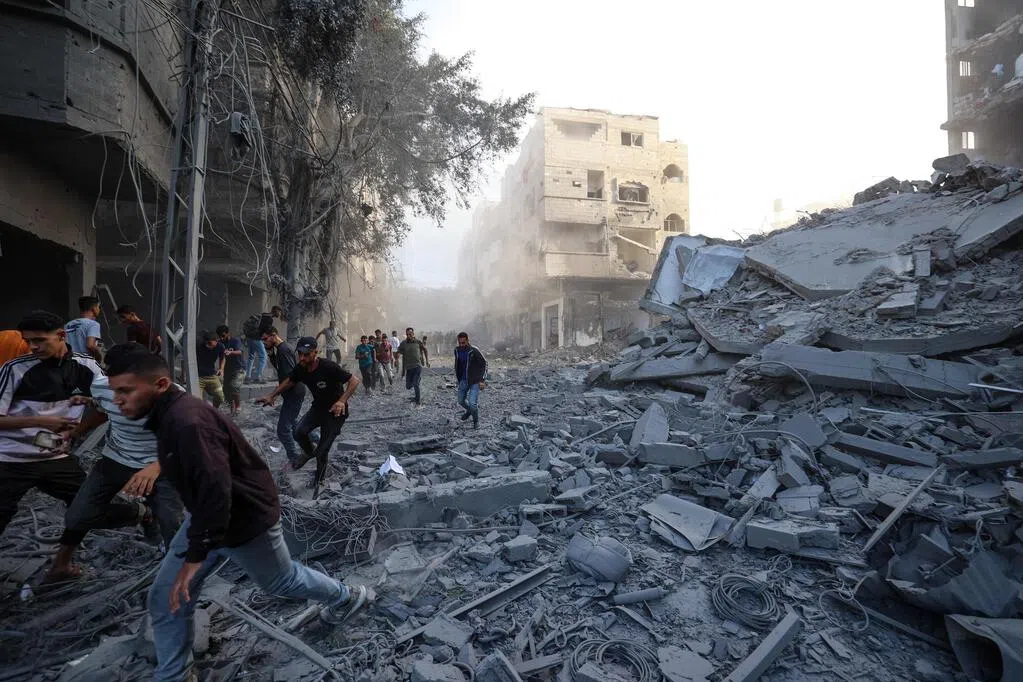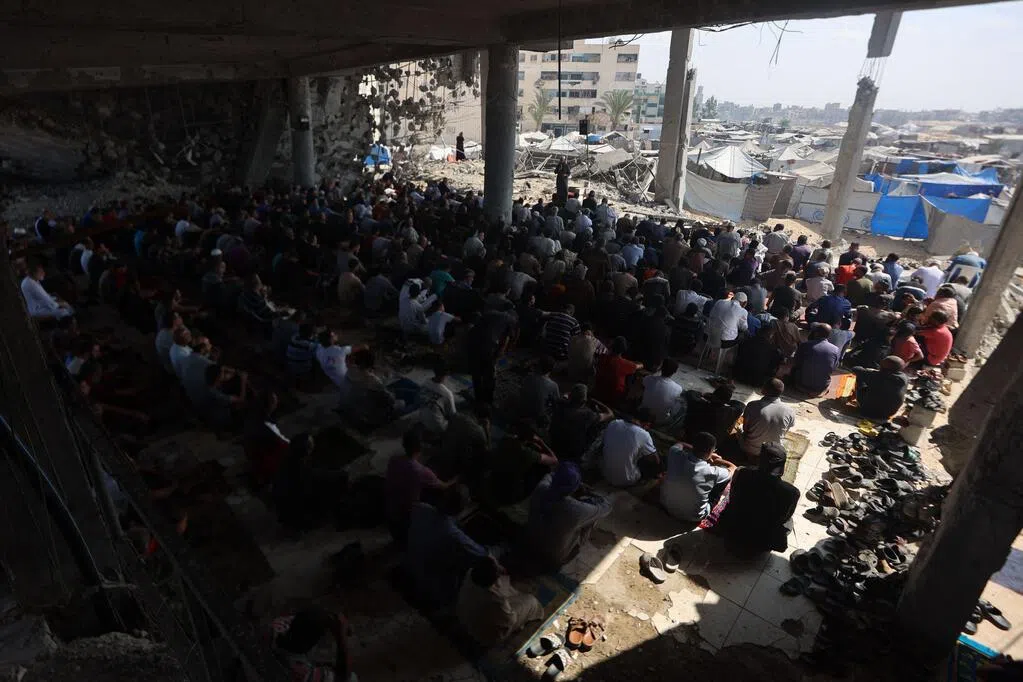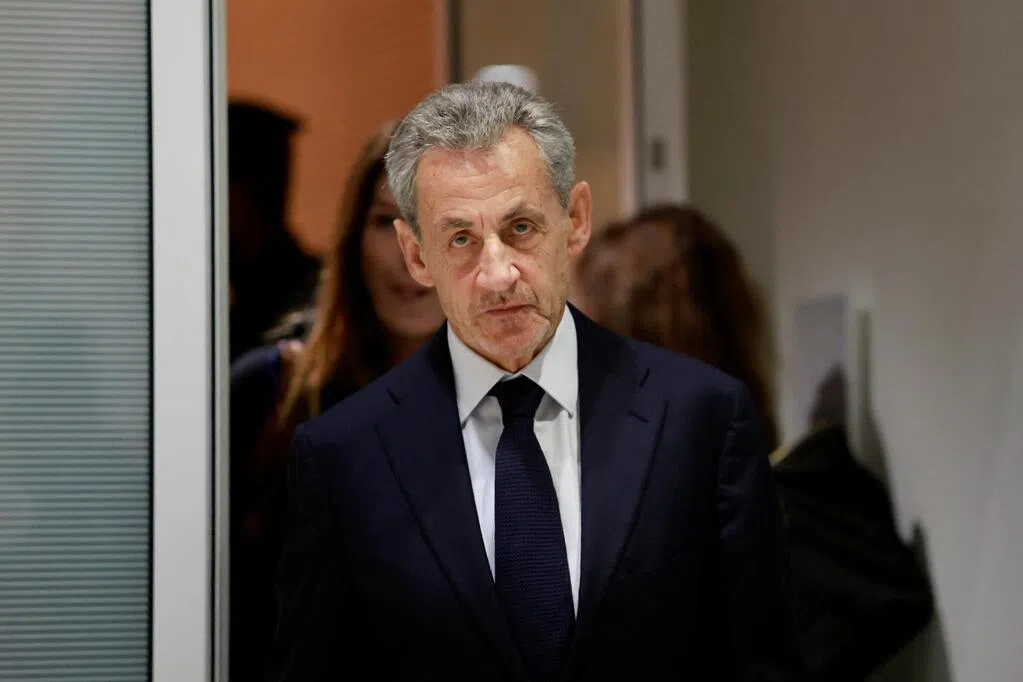After the Israeli military carried out dozens of airstrikes on Hamas targets over the weekend, the ceasefire in Gaza was restored on Sunday evening local time. Aid supplies, previously suspended, have also been re-entered due to US pressure.
US President Trump, speaking to reporters aboard Air Force One on Sunday (October 19), emphasized that the ceasefire in Gaza he brokered remains in effect. When asked if the ceasefire remains in effect, Trump replied, "Yes, it is."
Trump said that US officials believe Hamas's leadership may not have been involved in the ceasefire violations, and he was unsure whether the Israeli airstrikes were justified. "But regardless, this matter will be handled appropriately. It will be handled toughly, but it will be handled appropriately."
A spokesman for the Israeli Prime Minister's Office said that Trump's Middle East envoy, Witkoff, and his son-in-law, Jared Kushner, met with Israeli Prime Minister Benjamin Netanyahu on Monday to discuss the latest developments in Gaza.
The spokesman also said that US Vice President Cyril Vance and his wife will visit Israel in the coming days and will also meet with Netanyahu.
Further Reading


CBS reported Sunday that Kushner said in the interview that if Israel is to integrate into the broader Middle East after the war, it should help Palestinians prosper and live better lives. Kushner noted that the current situation remains extremely difficult, but he is seeking solutions that meet the security and economic interests of both Israelis and Palestinians to ensure lasting peaceful coexistence between Israelis and Palestinians.
Sources close to the Israeli-Palestinian negotiations revealed that Hamas' chief negotiator, Haya, led a delegation that met with Qatari and Egyptian officials in Cairo on Monday to discuss advancing the Gaza ceasefire agreement.
Gaza Civil Defense and several hospitals said a series of Israeli airstrikes across Gaza on Sunday killed at least 45 people.
Awda Hospital in the central Gaza town of Nusseirat reported that multiple airstrikes there killed 24 people and injured 73. Al-Aqsa Hospital in the central city of Deir al-Balah said an explosion near the hospital killed 12 people. Nasser Hospital in Khan Yunis in southern Gaza reported five deaths, and Shifa Hospital in Gaza City confirmed four deaths. Israeli media reported that the Israeli army came under attack from Hamas in the "Yellow Line" buffer zone, subsequently launching airstrikes in the Rafah area of southern Gaza. The Israeli army said the targets included battlefield commanders, gunners, tunnels, and arsenals.
The "Yellow Line" refers to the initial Israeli troop withdrawal boundary outlined in the ceasefire agreement and controlled by Israel. Netanyahu has instructed the military to respond forcefully to Hamas. Israeli Defense Minister Katz said any violation of the ceasefire or attempt to cross the "Yellow Line" would be met with artillery fire.
Hamas stated that it remains committed to its commitments under the agreement and denied any knowledge of the clashes in Rafah, stating that it has had no contact with Hamas members in Rafah since March.
Gaza Banks Reopen, But Cash Shortage
While Gaza has finally achieved a ceasefire, the lives of Palestinians attempting to rebuild their homes have not improved. They face shortages of food, drinking water, and medicine, as well as cash.
AFP reported that two Gaza bank branches reopened on Sunday for the first time since March, but residents were disappointed to find they had no cash to withdraw their money.
Fol, 38, who fled northern Gaza to Khan Yunis, said: "The Bank of Palestine reopened today, so I immediately went to the branch in Deir al-Balah. I wanted to withdraw my long-overdue salary, but there was no money."
UN experts accused Israel of financial repression, stating that not only have most banks and ATMs been destroyed, but Israel is also preventing the influx of new currency, potentially leading to runaway price inflation.
Anonymous bank officials revealed that Gazans have lost significant savings, and bank transfer fees can now reach up to 40%. "People are exhausted," said Amra, 33, from Deir al-Balah, almost desperately. "They just want to withdraw 100 (Israeli) shekels (about 39 Singapore dollars) without paying fees and just enough to buy food."



